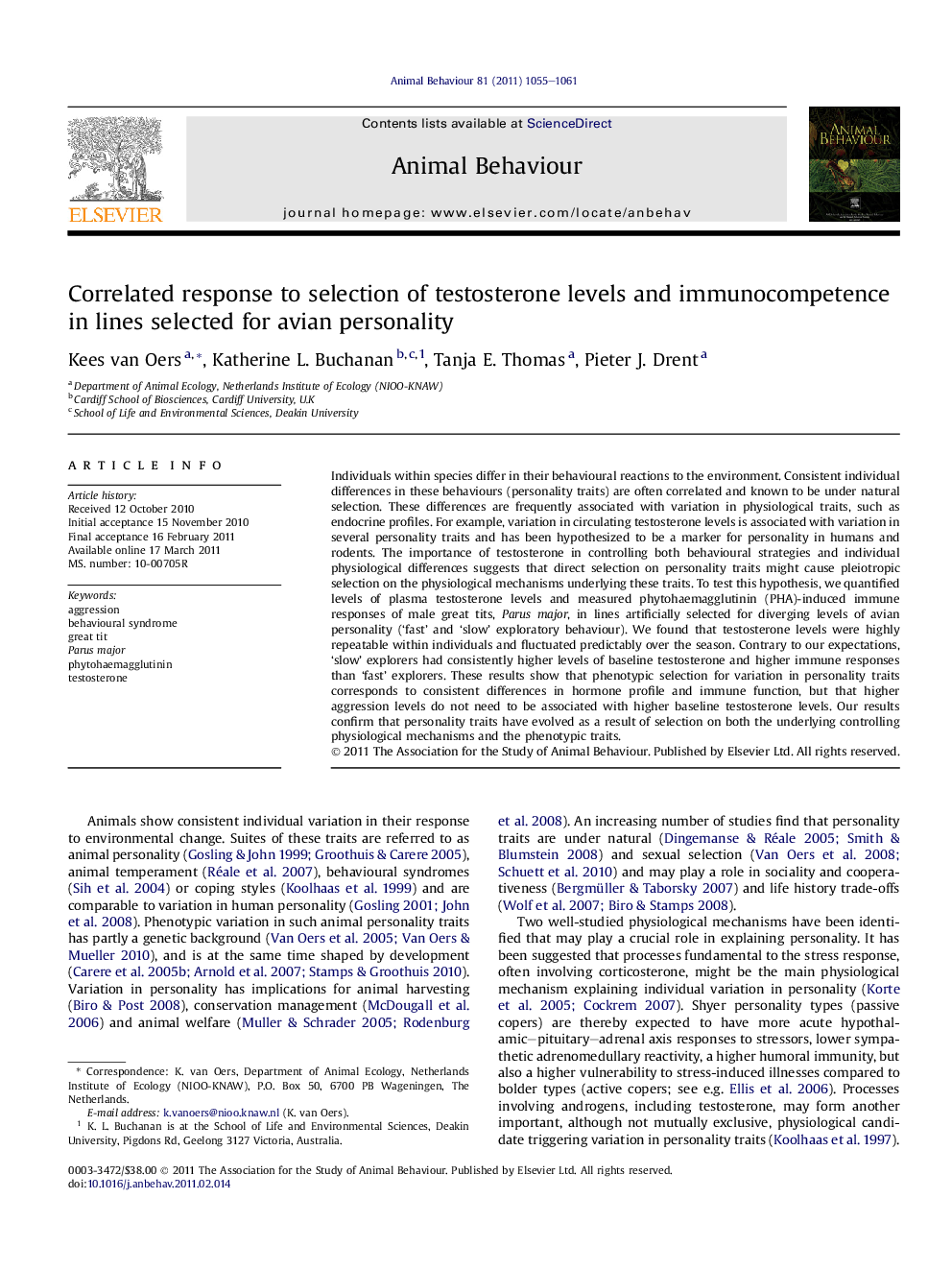| Article ID | Journal | Published Year | Pages | File Type |
|---|---|---|---|---|
| 2417064 | Animal Behaviour | 2011 | 7 Pages |
Individuals within species differ in their behavioural reactions to the environment. Consistent individual differences in these behaviours (personality traits) are often correlated and known to be under natural selection. These differences are frequently associated with variation in physiological traits, such as endocrine profiles. For example, variation in circulating testosterone levels is associated with variation in several personality traits and has been hypothesized to be a marker for personality in humans and rodents. The importance of testosterone in controlling both behavioural strategies and individual physiological differences suggests that direct selection on personality traits might cause pleiotropic selection on the physiological mechanisms underlying these traits. To test this hypothesis, we quantified levels of plasma testosterone levels and measured phytohaemagglutinin (PHA)-induced immune responses of male great tits, Parus major, in lines artificially selected for diverging levels of avian personality (‘fast’ and ‘slow’ exploratory behaviour). We found that testosterone levels were highly repeatable within individuals and fluctuated predictably over the season. Contrary to our expectations, ‘slow’ explorers had consistently higher levels of baseline testosterone and higher immune responses than ‘fast’ explorers. These results show that phenotypic selection for variation in personality traits corresponds to consistent differences in hormone profile and immune function, but that higher aggression levels do not need to be associated with higher baseline testosterone levels. Our results confirm that personality traits have evolved as a result of selection on both the underlying controlling physiological mechanisms and the phenotypic traits.
